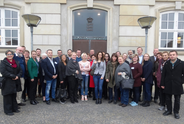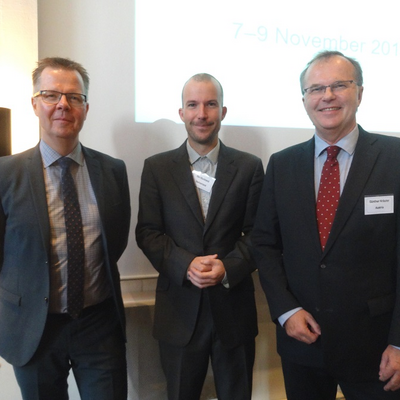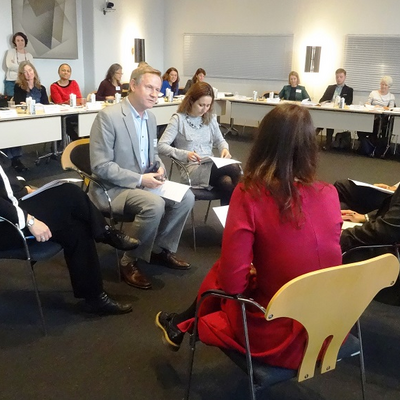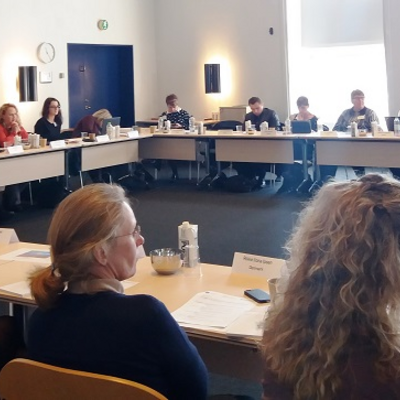The 4th IOI Workshop for NPMs took place in Copenhagen from 7 – 9 November 2018. The training event was generously hosted by the Office of the Danish Parliamentary Ombudsman and facilitated by the Association for the Prevention of Torture (APT). It brought 35 participants from 23 different countries together to discuss the topic of an effective follow-up process to NPM recommendations.
The overall objective of this IOI workshop series is to support National Preventive Mechanisms (NPMs) in their torture prevention work. During the Copenhagen workshop, participants exchanged experiences on how to maximize the impact of NPMs through refinement and improvement of recommendations, the establishment of an effective follow-up methodology and possibilities to track the implementation status of NPM recommendations in a systematic and efficient way.
In different interactive working sessions and group activities, participants looked into the different elements of the process of achieving change. The focus of following up on NPM recommendations and their implementation was set within the broader picture of how NPMs make change and what this “change perspective” means in practice.
In order to understand the place of recommendations within the overall process, participants discussed visits as the foundation of NPMs’ work and the process of writing reports and recommendations to elaborate what goes into a good recommendation and how recommendations and reports contribute to change.
Regarding the process of following-up to NPM recommendations and tracking their implementation, participants look at different indicators on how to measure successful implementation and how to know if each recommendation is leading to the desired change. Different tools that NPMs use to track recommendations and their implementation status were presented, to give colleagues different ideas on how the tracking process can be put into practice.
The final training block put a special focus on the general importance of dialogue. Who are the different parties to be involved (authorities, national and international actors, other stakeholders) and how can NPMs best interact with these actors in order to achieve change? In different working groups participants discussed ways in which NPMs can use dialogue, communication and cooperation to make sure recommendations are implemented.
Ms Mari Amos from the UN Subcommittee on Prevention of Torture (SPT) and Mr Moritz Birk from the Austrian Ludwig Boltzmann Institute for Human Rights accompanied the 3-days-workshop and contributed their expertise and input in the plenary discussions as well as during the different groups sessions.
In addition, a range of presentations were made to provide background information from different parties. Dr. Jens Modvig, representative of the UN Committee against Torture (CAT), explained how NPMs can contribute to the CAT reporting cycle and thus help strengthening the follow up to recommendations (e.g. through shadow reports or input to the list of issues prior to reporting). Dr. Arman Tatoyan, Public Defender of Armenia and former member of the European Committee for the Prevention of Torture (CPT), elaborated on the working methods, challenges and experiences of the Armenian NPM after 10 years of work. Dr. Richard Carver, Senior Lecturer in Human Rights and Governance at Oxford Brookes University, introduced the main findings of a study carried out to verify if torture prevention does work, concluding that prevention measures do work, although some much more effectively than others.
The training as such was facilitated by the Association for the Prevention of Torture (APT), which signed a Memorandum of Understanding with the IOI earlier this year. The APT promotes transparency in all places where people are deprived of liberty. Over the past 40 years, it has developed a global overview and expertise in all aspects of torture prevention and it supports governments, justice systems and NPMs to take effective actions to prevent torture and other ill-treatment.




